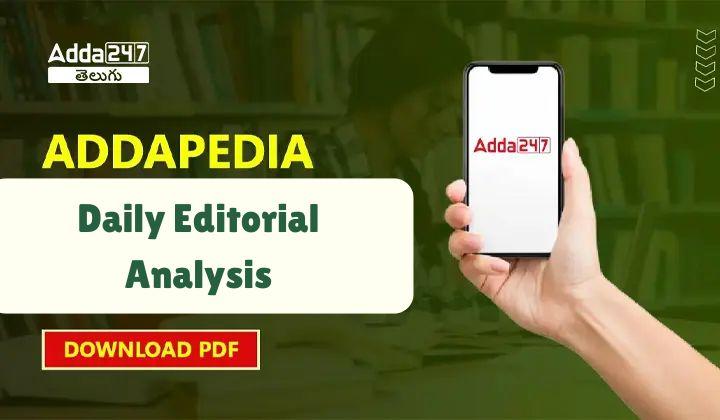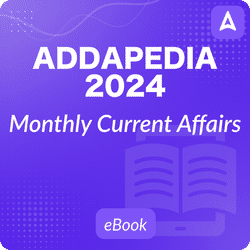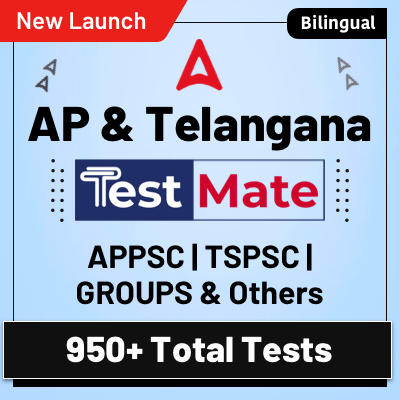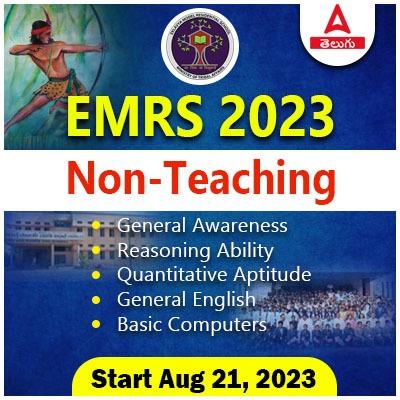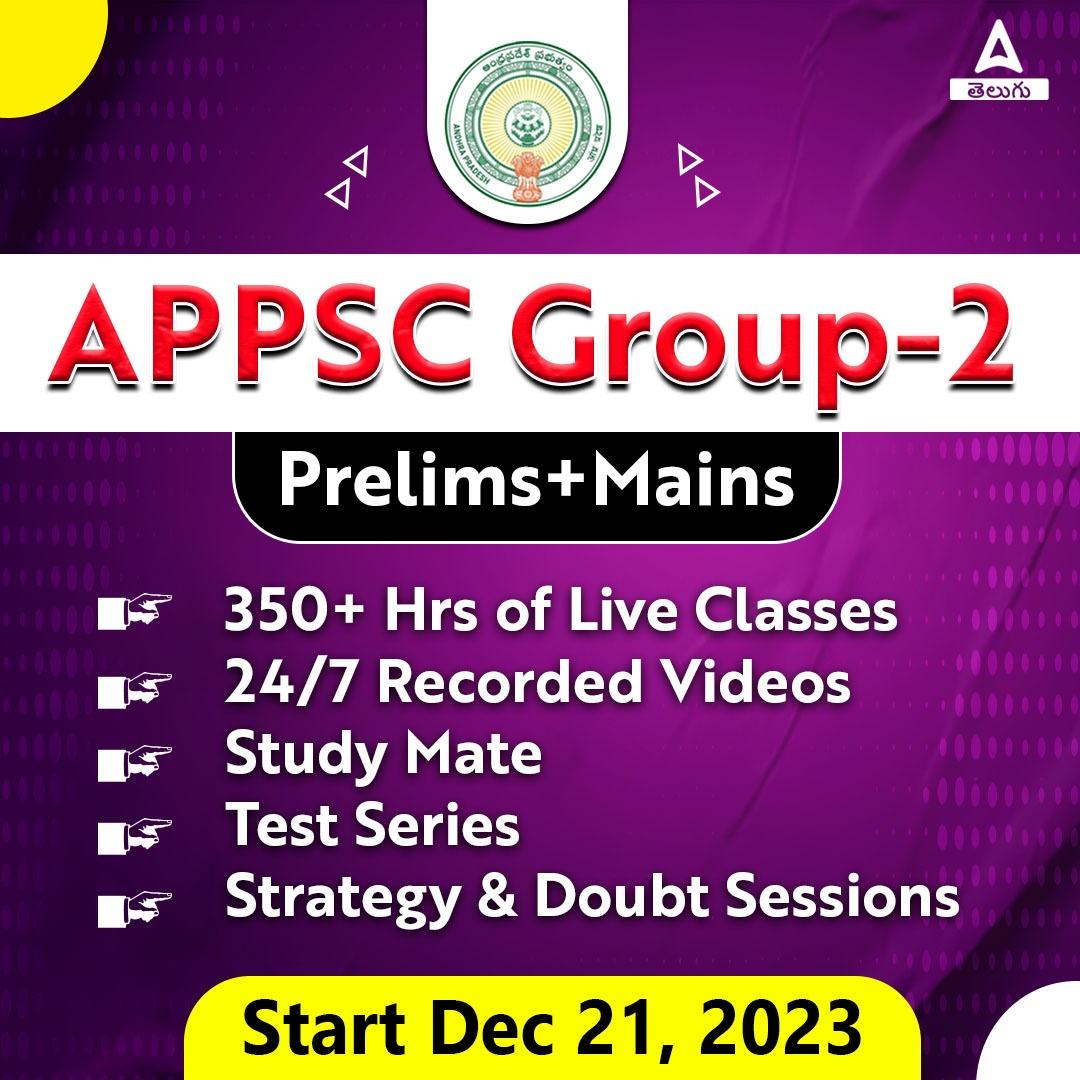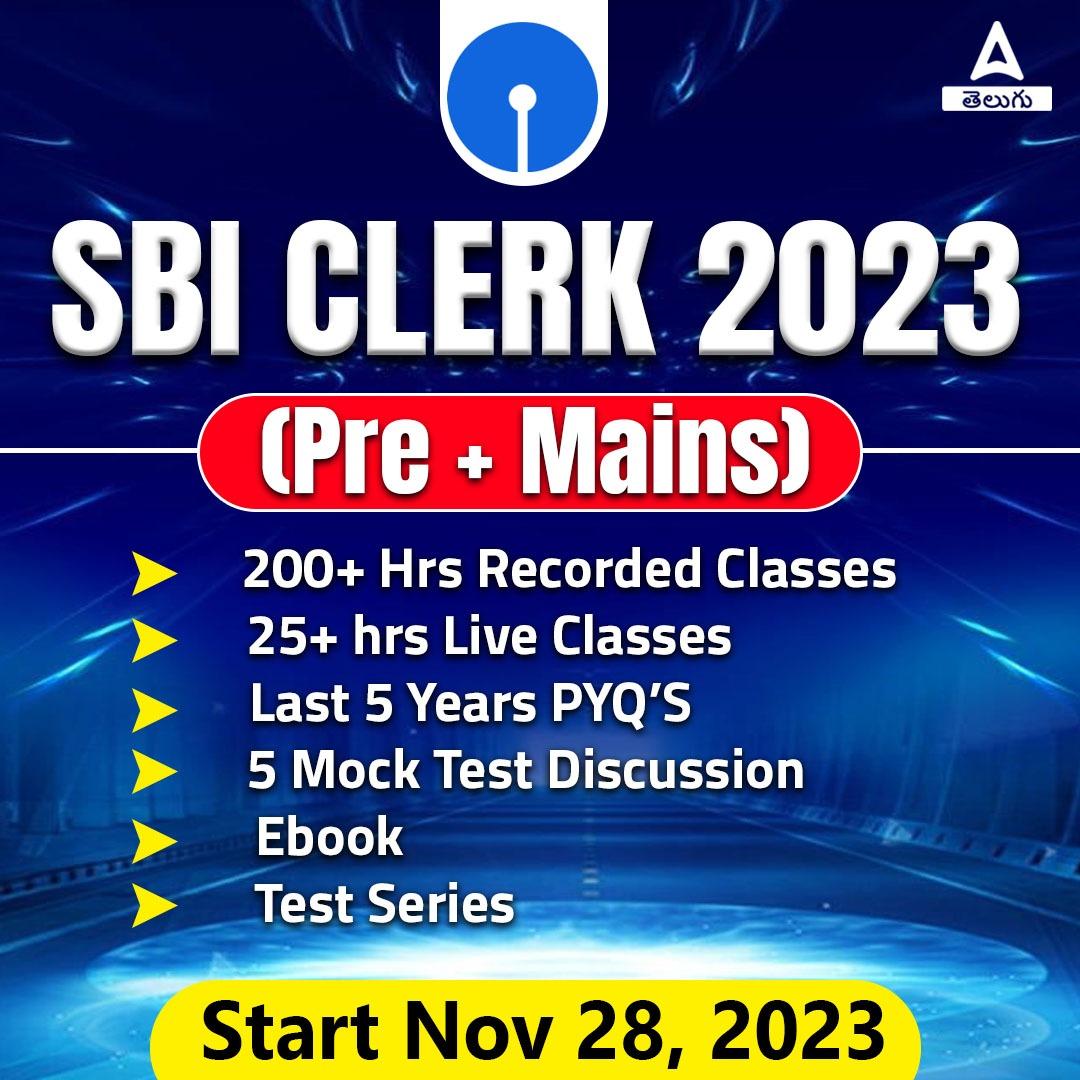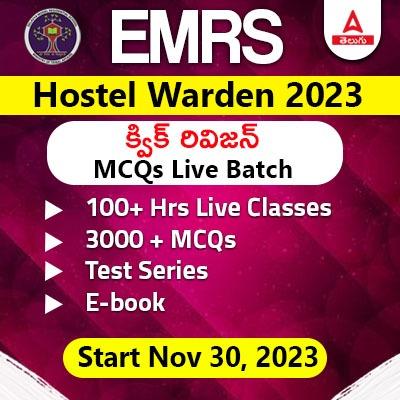Addapedia Editorial: Daily News Editorial PDF, 05 September 2024: Hello Aspirants ADDA 247 is back with Editorial Analysis in English. your daily source for in-depth news coverage and insightful editorial analysis. In this section, we bring you a comprehensive look at the latest national and international events, current affairs, and the historical context behind today’s most pressing topics. Our goal is to provide you with a well-rounded perspective on the news, helping you understand not just the headlines, but the intricate details and background that shape our world. This ADDAPEDIA Editorial Analysis will help you understand the National and International events Current affairs and the background of a particular topic. This comprehensive News analysis will help you in Clearing CA and Interview for many exams.
Adda247 APP
Sub-classification verdict through Ambedkar’s ideals
The Supreme Court of India judgment, on August 1, 2024, in The State of Punjab and Ors. vs Davinder Singh and Ors., on the sub-classification of reservations, embodies the vision of social jurisprudence.
What is the significance of the Supreme Court judgment on sub-classification of reservations?
- This judgment overturns the earlier V. Chinnaiah case (2004), which had held that sub-classification within SCs was unconstitutional
- The judgment affirms states’ power to sub-classify within SC/ST categories for reservations, giving states more flexibility to address local socio-economic disparities
- It emphasizes the need for empirical data to justify sub-classification, potentially leading to more evidence-based policy-making in affirmative action.
- Addresses the heterogeneity within the Scheduled Castes (SC) community, that addresses the nuances of internal divisions within the caste order
- Ensures social justice reaches the most neglected and deprived sections among Dalits reflecting Ambedkar’s lifelong struggle for social and civil justice.
- While not directly implementing it, the judgment discusses the concept of ‘creamy layer’ within SCs, opening up future debates on this controversial topic.
What are the main criticisms and concerns regarding the sub-classification judgment?
- Fear of fragmentation of the Dalit constituency and weakening of the collective Dalit movement
- Concerns about diminishing political leverage for leading segments of Dalits
- Misrepresentation of various Dalit movements as detached from Ambedkarite consciousness
- Challenges in accepting and implementing the judgment across different states
How can the Ambedkarite movement embrace this judgment positively?
- Recognize it as a reflection of grassroots activism and demands for sub-categorisation
- Embrace its potential to enhance social justice and promote equitable representation
- Broaden focus beyond traditional reservation policies to include private sector reservations and land redistribution
- Uphold Dalit civility while addressing the creamy layer issue and preventing political exploitation
Can you answer the following questions?
Critically analyze the Supreme Court judgment on sub-classification of reservations within Scheduled Castes.
From crisis to cascade of hope
How has the Cauvery water situation changed recently?
- Early July: Both Karnataka and Tamil Nadu were on the brink of a water crisis
- Since late July: Copious rains brought dramatic change
- Tamil Nadu received its entire share for July and August, even marginally higher
- As of September 2, Tamil Nadu received about 181 tmc ft since June 1, exceeding the annual stipulated quantum of 177.25 tmc ft
What is the significance of the southwest monsoon for the Cauvery basin?
- Crucial for both Karnataka and Tamil Nadu
- Represents the wettest period for Karnataka
- Yields the highest quantum (123.14 tmc ft) of water for Tamil Nadu
- Historical data shows distress occurs at least once in three years during this period
How effective are the Cauvery Water Management Authority (CWMA) and Cauvery Water Regulation Committee (CWRC)?
- Background of CWMA and CWRC:
- Established in 2018 following the Supreme Court’s order to implement the Cauvery Water Disputes Tribunal’s final award
- CWMA is the primary body, while CWRC assists the CWMA in its functions
- Replaced the earlier Cauvery River Authority, which was headed by the Prime Minister
- Composed of officials from central and state governments, focusing on technical and administrative aspects
- Pros of CWMA and CWRC:
- Put to test during 2023-24 water year & Performance considered satisfactory given constraints
- Provide a dedicated institutional mechanism for water sharing and dispute resolution
- Offer a more technical and less politicized approach compared to the previous arrangement
- Enable regular monitoring and decision-making on water allocation
- Facilitate coordination between riparian states and central government
- Shortcomings of CWMA and CWRC:
- Lack of transparency in decision-making and timely dissemination of information
- Limited composition, consisting only of government officials, lacking diverse expertise
- Insufficient manpower and resources to carry out functions effectively
- Decisions sometimes not accepted by all parties, leading to continued disputes
However, following suggestions are provided
- Need for greater transparency in functioning
- Suggestion to enlarge composition to include non-officials and experts
What potential solutions are proposed for ongoing water issues?
- Addressing Bengaluru’s drinking water shortage by exploring the Mekedatu Balancing Reservoir-cum-Drinking Water Project
- Considering third-party (Union government) participation in project execution
- Optimizing water resource utilization to prevent waste
Can you answer the following question?
Discuss the role of institutional mechanisms like Cauvery Water Management Authority (CWMA) and Cauvery Water Regulation Committee (CWRC) in managing inter-state water conflicts, and suggest measures to improve their effectiveness in ensuring equitable water distribution.
| Adda247 Telugu Home page | Click here |
| Adda247 Telugu APP | Click Here |

